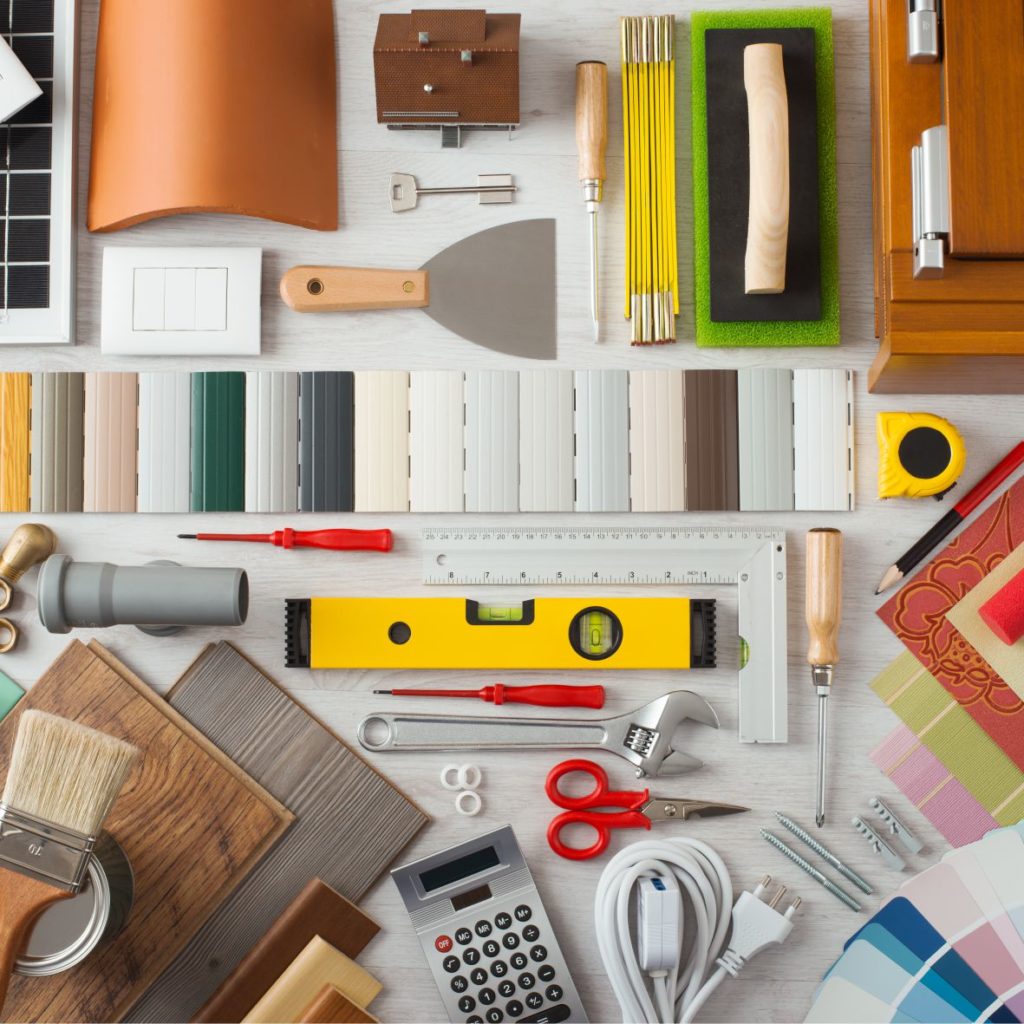Over the past few years, Britain has enjoyed something of a boom in home improvement. With lockdown restrictions preventing professional tradespeople from doing the work, many homeowners have picked up their own tools and gotten a taste for renovation with a few projects of their own.
If you’re going to get the most from your DIY exploits, then it makes sense to equip yourself with a little bit of knowledge beforehand. Let’s see if we can rattle through some of the tips that’ll save you time and money and help you to excel.
Finish what you start
An unfinished DIY project can theoretically sit there for months and years, especially if you move onto the next project before you wrap up. Avoid this problem by committing to do everything sequentially. If you’re halfway through replacing the skirting board, then don’t try to re-paint the ceiling at the same time.
Clingfilm your rollers
After you’ve applied a coat of paint to your walls, you’re going to run into the problem of your roller drying out. You don’t need to wash and re-coat your rollers; in fact, doing so will shorten their lifespan. Instead, soak the roller in paint and wrap it in clingfilm. That way, when you’re ready to paint again, you can simply unwrap and go.
Update your furniture
You don’t need to be a master carpenter to breathe new life into tired old furniture. Just sand, brush, re-paint and repeat. If you don’t want to go that much hassle, then you might simply replace the hardware. You can harvest the knobs and handles off old antique items you might find in charity shops.
Invest in the right tools
When you’re first getting started with DIY, it might seem like the list of tools you need is virtually endless. It’s best to concentrate on what’s really essential, and to spend the extra money to get something that’s going to last. Look for reputable brands, and reputable sellers. You can pick up DeWalt power tools, for example, and have them last a lot longer than the equivalent no-name or own-brand tool.
Invest in PPE
If you’re DIYing, safety should come first. Get some ear defenders, goggles and protective gloves. Perhaps more importantly, know the risks involved with the tools that you’re using. Some tools are more dangerous than others!
Know your limits
Finally, it’s worth noting that a good DIYer knows when to quit and to call in the professionals. Are the consequences of a failure going to be completely disastrous? Is the project going to involve a steep learning curve? If so, it might be a good idea to call in a professional.

